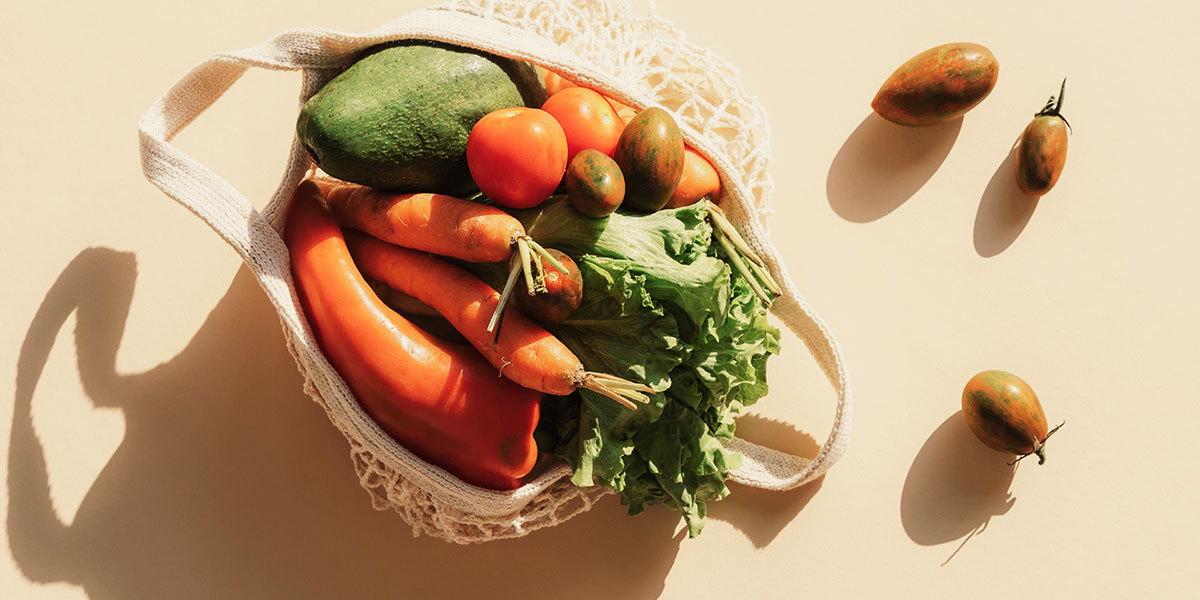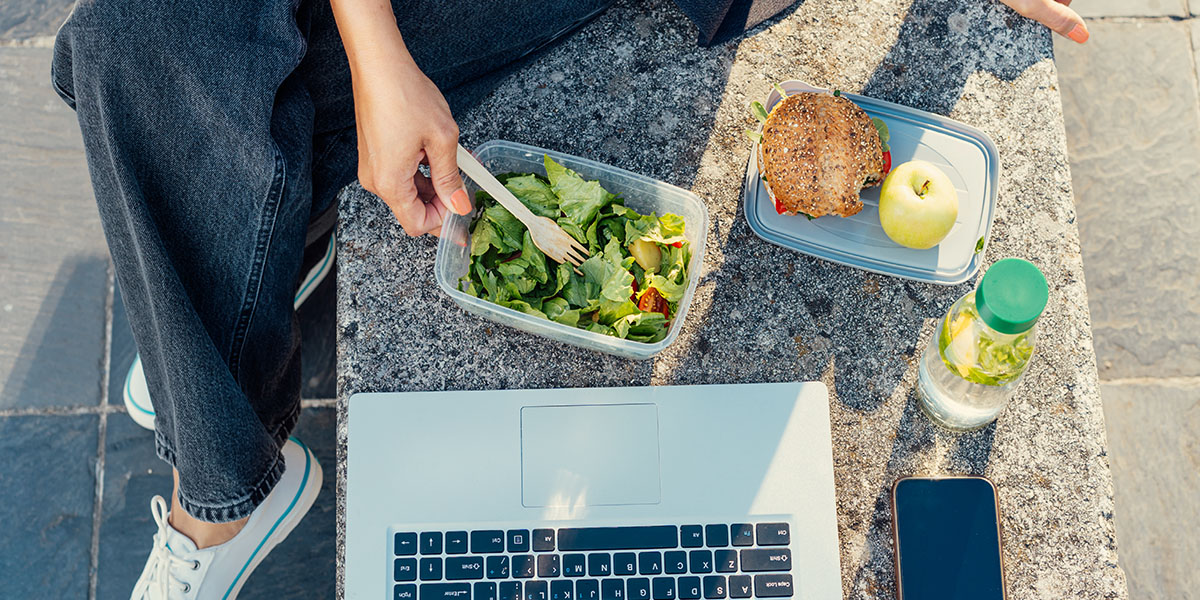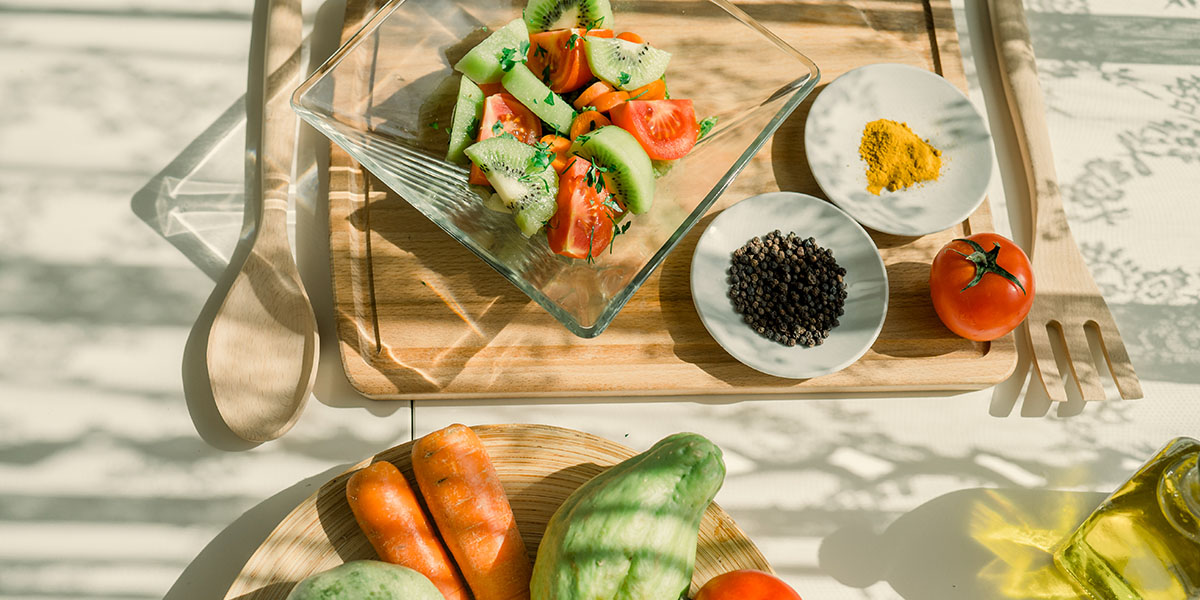Vowing to eat better this year? Some of the most common nutrition resolutions aren’t easy to keep. Here are 3 to skip, and how to replace them.
Eating well and fuelling your body: Where to start?
Want to eat healthier but don’t know where to start? Here are 5 tips to help you get the nutrients your body needs.

If you’re looking to improve your health, boosting your nutrition is a great place to start.
Making healthy food and drink choices on a regular basis can help you maintain and improve your overall health. You’ll also feel good too.
Tips for healthy eating
Making big changes to your diet can seem overwhelming. Instead of making major changes, try starting with a few smaller ones. You’ll be more likely to succeed. When you prove to yourself you can do something, this will boost your confidence and help you overcome obstacles.
Here are 5 tips for healthy eating:
1. Fill half your plate with vegetables and fruit at every meal and snack
Fibre, vitamins and minerals are essential to good health – and vegetables and fruits are full of them. Canada’s food guide recommends eating seven to 10 servings a day.
This includes fresh, frozen or canned vegetables and fruit. For canned vegetables, choose ones that have little to no added salt. If they do have salt, you can drain and rinse them to lower the amount of sodium. And for fruit, choose ones that have little to no added sugar.
Does eating seven to 10 servings of vegetables and fruits a day seems difficult? Try adding them to one or two of your meals a day, and over time, add more. Here are some ideas:
- Add a handful of blueberries with your breakfast cereal.
- Make a vegetable-based soup.
- Add vegetables to your pasta sauce.
- Grate carrots and celery into your meatloaf.
2. Eat enough protein
Proteins are the main building blocks of your body. They’re used to grow and repair cells in your muscles, tendons, skin and nails. Your body also uses proteins to make enzymes and hormones which carry out important body functions.
Most adults need around 0.8g of protein per kilo of body weight. However, this total depends on your age, sex, health status and activity levels.
If you’re looking to get more protein in your diet, here are some suggestions:
- Greek yogurt is a protein rich food that you can use throughout the day. Add some to your granola for breakfast. Put a spoonful on a carrot or pumpkin soup. Or enjoy with fruit as a dessert.
- Beans are great in soups, pasta sauces, dips and casseroles. Try adding a drained can of cannellini beans to your favourite soup recipe.
- Eggs are versatile and easy to prepare. You can enjoy them on their own or mixed into a variety of dishes.
- Nuts and seeds are great in salads, with vegetables and served on top of curries. Try adding some sunflower seeds or slivered almonds to your green salad.
3. Choose whole-grains
Whole-grain cereals and foods can reduce the risk of developing diseases such as coronary heart disease, cancer and diabetes. When grains are refined (for example, to produce white flour), the bran and germ are usually removed. This strips the grain of important nutrients including B-vitamins, iron and fibre.
Try these tips to add more whole-grains to your meals and snacks:
- Enjoy breakfasts that include whole-grains like oatmeal, whole wheat bran flakes or shredded wheat.
- Make sandwiches using whole-grain breads or rolls.
- Use whole wheat tortillas instead of white flour tortillas.
- Use wild rice or barley in soups, stews and casseroles.
- Use whole-grain pastas.
4. Eat mindfully to fuel your body
Being mindful of your eating habits takes the concept of mindfulness (giving your full attention to your thoughts, emotions and physical sensations) and applies it to food. It involves having an awareness of what you are eating and why (how the foods help your body function well). It also involves:
- Listening to physical hunger cues and eating only until you’re full.
- Recognizing true hunger and if an emotional trigger has sparked your hunger.
- Eating slowly and without distraction.
- Learning to cope with guilt and anxiety about food.
- Eating to maintain overall health and well-being.
- Enjoying the food choices you make.
5. Hydrate yourself
While water isn’t food, it is vital to our health. It plays an important role in many of our body’s functions including:
- Getting rid of waste.
- Bringing nutrients to cells.
- Lubricating joints.
- Protecting organs.
- Preventing constipation.
A common guideline is to drink eight glasses of water a day. But the reality is the amount of water you need varies from person to person.
If you’re working out a lot or sweating, for example, you should be drinking more water. How much water you need may also change depending on your health. If you have an infection or fever, or if you lose fluids through vomiting or diarrhea, you’ll need to drink more water.
Here are some tips to help you stay hydrated:
- Always carry a bottle of water with you and drink before you feel thirsty.
- Being thirsty or slightly dehydrated can make you feel hungry when you’re just thirsty. Making sure that you are well hydrated throughout the day can help reduce cravings.
You'll know that you're drinking enough if:
- You urinate every few hours during the day.
- You feel well.
- You’re not thirsty too often.
Snacks to fuel your body
Snacks with a combination of protein, fibre and healthy fats are a great way to help keep you full during the day. They can also help you increase your intake of nutrient-rich foods like vegetables and fruits.
Here are some nutritious snack ideas:
- A medium-sized fruit or half a cup of berries with about fifteen nuts or 15 g of nut butter.
- Half a cup of low-fat cottage or low-fat Greek yogurt with half a cup of fruit. You can add cinnamon for taste.
- Rice cake with natural peanut or nut butter.
- Raw vegetables with 1-2 tablespoons of hummus.
- Roasted chickpeas. Drain and rinse a can of chickpeas. Next put a little oil and seasoning (curry, Italian spices). Then bake in the oven at 200ºC (400ºF) for 30 to 40 minutes.
Remember, overhauling your diet all at once can be overwhelming and harder to do which can lead to feelings of self-doubt. Instead try to incorporate small changes bit by bit. By mastering small changes, you’ll gain confidence, and these little improvements will slowly become part of your lifestyle. Change is a process, not an event.
Looking for support? A registered dietitian can help.
Visit Sun Life Healthy you for ideas, tools and tips for developing healthy eating habits.
This article is meant to provide general information only. It’s not professional medical advice, or a substitute for that advice.



